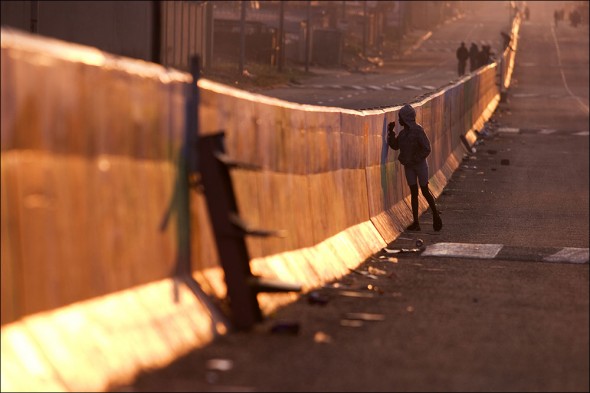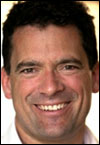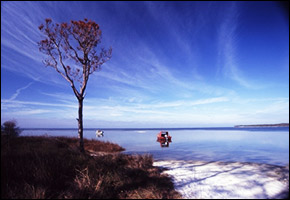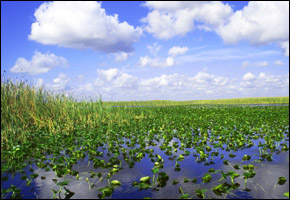James Workman: Mandela’s Global Water Ambassador Dies — A Reflection on South African Human Rights Lawyer, Kader Asmal
Kader Asmal: 8 October, 1934 – 22 June, 2011

By James G. Workman
When Nelson Mandela named Kader Asmal South Africa’s first democratic Minister for Water Affairs and Forestry – a futile effort to keep the outspoken, irascible, chain-smoking lawyer and friend out of trouble – Asmal claimed ignorance about the rudimentary basics of his new portfolio.
Mandela recognized it as a familiar ruse. Asmal, a renowned human rights lawyer, viewed water as a means to an end — empowering the poor, replenishing ecosystems, and securing the lives of unborn generations. Before his death at age 76 on Wednesday, June 22, Asmal rose to international stature by giving marginalized interests a loud and articulate voice, both in South Africa and throughout the world.
He did so even though the start of his career in water management was marked by questions like asking where groundwater came from. Asmal stumbled over ‘cumecs’ and ‘acre-feet.’ He inquired if ‘conjunctive use’ (combined surface and aquifer management) involved treatment of some form of contagious eye disease.
And if you regurgitated that tired cliché of how ‘water is life,’ his eyes would twinkle.
“Ah, yes,” he said, unlocking a cabinet by his desk. “The Irish uisce beatha, ‘the water of life’.” Then the dapper, brilliant, and indefatigable scholar poured you a dram of Jameson’s Whiskey and raised the only question that mattered: “But whose water is it?”
In asking and answering that question, Asmal became the world’s most influential water advocate and the first non-scientist to earn the prestigious Stockholm Water Prize.
Asmal’s secret tactic was his Socratic method.
The Professor professed to know only that he knew nothing about water, and so liberated himself from any need to prove himself the smartest guy in the room. Instead, Asmal made damn sure to enlist the room’s smartest men and women to provide counsel at his side. He amplified their ideas through his political microphone and empowered them to turn concepts into practice.
— Kader Asmal
To wit: How could his semiarid country squeeze more water for millions of deprived people without taking it from nature or existing allocations?
Progressive scientists suggested “reducing green water lost through the transpiration of certain invasive biomass.” Asmal had no idea what the hell they were talking about. But when he saw that there was a job-creating opportunity involved with eradicating weeds that would otherwise dry up 25% of the country’s annual runoff, Asmal launched Working for Water, Africa’s largest and most successful public works program, which ensured 18 percent of the runoff each year made it into rivers and reservoirs and homes.
More dramatic was his rewriting of South Africa’s Constitution in 1997-1998 to enshrine in it a human “right to sufficient water,” as well as an “ecological reserve” to ensure healthy “environmental flows” for all who depend upon the river. These were not Asmal’s ideas, but he was the alchemist who made them real.
Asmal trusted advisors as diverse in views; he encouraged debate; he ensured the best ideas rose to the top; he championed an extensive survey of progressive ideas from rest of the world – especially from France, Australia, and the United States — all of which he seized, synthesized, and inscribed into a pragmatic law that connected thirsty millions to taps.
And yet “law,” as Asmal often put it, “is nothing more than congealed politics.” He saw law as a fluid set of evolving norms and politics as the democratic interplay of those ideas in an open, ordered, and transparent setting. That could have marked him as a naïve idealist — until you watched him in action. Asmal mastered “the art of the possible,” as he congealed the fierce global politics of water from his seat as chair of the World Commission on Dams (WCD).
The Commission brought together a dozen powerful and contentious leaders from around the world with the mandate to develop a new framework for development of water and energy. The WCD’s report was based on the experience of 1,400 participants. It reviewed more than 1,000 papers and relied on surveys of hundreds of dams.
Asmal sat at the epicenter and kept all parties guessing as to where his loyalties were. He had, after all, authorized the largest dam in the Southern Hemisphere, yet, at the same time, he also had argued for human rights and ecological integrity. Only in retrospect do we see Asmal’s loyalty rested not with any side, but with the integrity of the process — his Commission remained fiercely transparent, inclusive, honest, independent, and exhaustive.
The WCD infuriated powerful extremes who embraced or opposed dams out of ideological purity, and perhaps that is why the WCD report has never gathered dust. To the contrary, it was translated into dozens of languages and has sparked debate from World Bankers to riverbank workshops led by illiterate villagers. The Commission’s example set a high bar for hard decisions made in the open, through vigorous debate, careful deliberation, and the democratic wisdom of crowds. The WCD’s legacy – Asmal’s legacy – endures less in what the report says than in who and how many had a key role in saying it.
“An independent spirit and tireless advocate for human rights,” wrote Peter Bosshard of the International Rivers Network. “[Asmal] honored the real-life experience of a dam-affected farmer and the ideas of an NGO activist as much as the expertise of an academic and the testimony of a government minister.”
Indeed, it is hardly a coincidence that by empowering his aides with a role in decision-making, Asmal ensured they would remain committed to that inclusive process throughout their careers. People who Asmal mentored are busy rewriting the rules of transboundary rivers or of water rights exchanges to benefit the poor and aquatic species—and all in developing and developed countries alike.
“His efforts turned the South African water experience into one envied by others around the world,” said Peter Gleick of the Pacific Institute. “I often wish we had a California version of Kader Asmal to lead us out of the Dark Ages of Western water dysfunction into the 21st century. His legacy will persist.”
Asmal’s rebukes could blister and his wit remained acerbic, but he chose his enemies wisely, and, in online tributes this past week, earned the grudging respect of self-proclaimed opponents as “a principled and selfless servant of all the people of South Africa…not motivated by money or power, rather morality.”
Nudged out of President Thabo Mbeki’s second cabinet after questioning in private Mbeki’s ignorant and lethal AIDS policies, later resigning from Parliament in dismay over the deliberate erosion of law and order, Asmal refused to be silenced.
As Mandela stayed above the fray, Asmal and his colleague Archbishop Desmond Tutu became the vocal conscience of the ruling African National Congress, unafraid to criticize party leaders who had lost sight of democratic ideals. To the end, he spoke out against demagogue bullies; against secrecy bills; against unthinking discrimination, bigotry, and corruption.
He speaks no longer.
Yet, you can still hear Kader Asmal’s voice at its most quietly eloquent if you simply venture into the arid rural pockets and urban slums of South Africa, or for that matter any country, and listen to the sound of running water that, under his legacy, now flows to the people, of the people, and by the people for whom he fought…and won.
James G. Workman served as a Senior Advisor under Kader Asmal at the World Commission of Dams in 2000-2001.






Comments are closed.